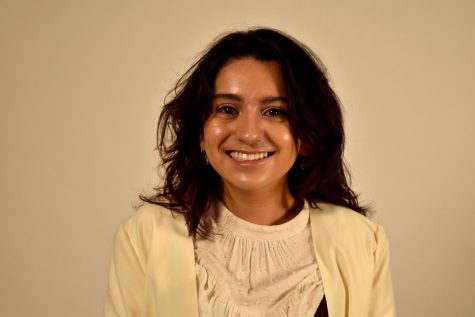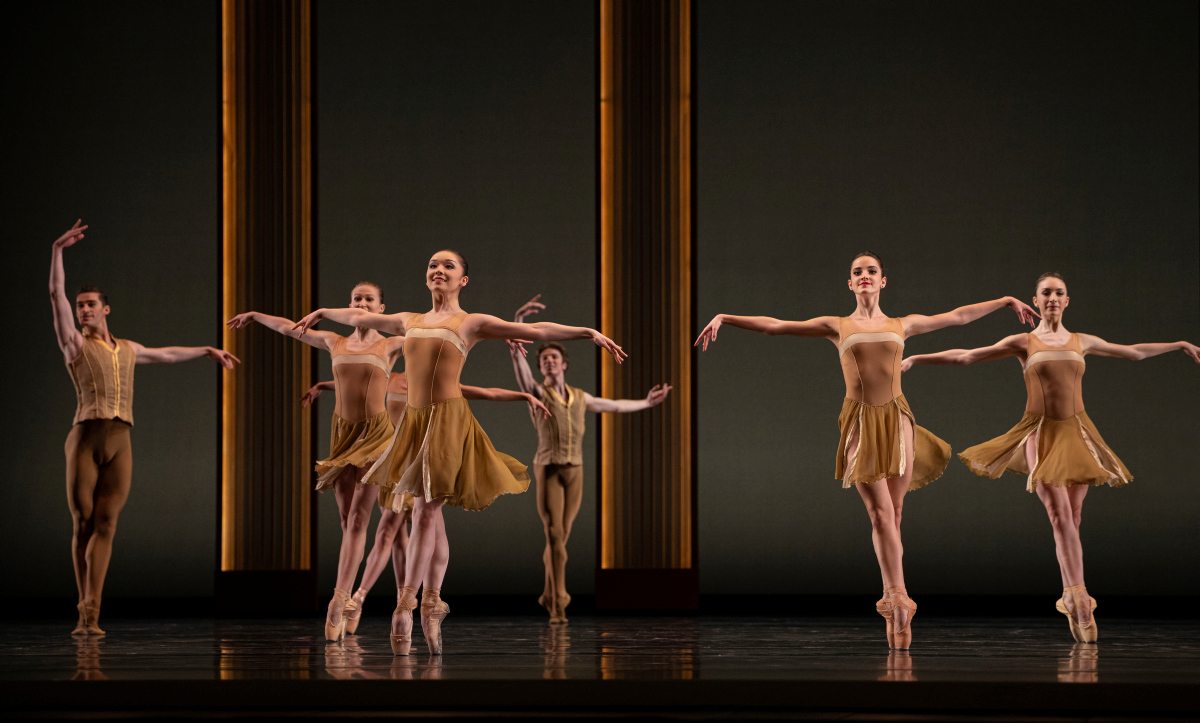
REVIEW: SF Ballet ‘Chasses’ Back into Opera House
After a two year delay, the War Memorial Opera House opened its doors to patrons for SF Ballet’s newest seasons
Feb 7, 2022
After its 2020 season was cut short, the San Francisco Ballet welcomed patrons back to the Memorial Opera House as it opened the final season of its artistic director and principal choreographer Helgi Tomasson.
Tomasson made his SF Ballet debut in 1985, beginning the diverse and innovative institution and placed San Francisco on the map with his stamp on “Swan Lake” in 1988.
Tamara Rojo has been chosen as the ballet’s next artistic director. She is the first female to lead the country’s oldest professional ballet company.
Tuesday evening, Tomasson returned to Tchaikovsky by opening with “Trio.”
PROGRAM I: “Mrs. Robinson”
By Anaïs-Ophelia Lino
Trio served as the appetizer of the night, preparing the audience for an evening of splendid movement. Set to Tchaikovsky’s “Souvenir de Florence,” three pairs of dancers swayed through the stage, their movements mimicking budding romance, tense love triangles and heartbreak.
Composer Martin West heightened the drama with his take on Tchaikovsky composition. Dancers moved kinetically and crisply to the score, never missing a beat like a perfectly contrived tarantella. The piece proved that ballet is all about the relationship between the movement and the music.
But the showstopper was the world premiere of “Mrs. Robinson.” A modern take on the 1967 film “The Graduate,” choreographer Cathy Martson puts the enticing and titillating female lead center stage.
SF Ballet patron Linda Nakamura remembers watching the film for the first time in highschool.
“[The film] was a sensation and these people did capture that. The eroticism, the disappointment, the fury of why things didn’t work out the way they thought it would and without a single word being said,” Nakamura said.
Nakamura listed her expressions: disillusioned, frustrated, and lonely. Lead dancer Sarah Van Patten encapsulates all of these emotions through movement and physicality. With sharp glances and slow, languid movements, Van Patten captures the audience and Dustin Hoffman’s character played by Joseph Walsh.
The two tumble around each other to mimic the forbidden romance and when the relationship comes to a climax, Van Patten clings on to Walsh, emitting tension throughout the theater.
SF Ballet brought out its best for this performance. The ensemble danced comfortably in suits and dresses that evoked the mod look of the 60’s and certain moves were playfully choreographed to mimic the “twist.”
The set design gave it final touches by embodying the mid-century with a simplistic house frame and a faux-hedge that stretches along the stage used to guide the audience’s imagination.
Program I will continue through Feb. 12. $29-$448.
War Memorial Opera House, 301 Van Ness Ave., S.F. 415-865-2000. www.sfballet.org
Program II:
By Jensen Giesick
Hundreds of patrons waited with anticipation to enter the War Memorial opera house for the first night of Program 2.
The buzzing energy in the room quickly turned to dead silence as the lights dimmed and the curtain rose. The evening began with a short film of Helgi Tomasson and the history he made.
Program 2 includes Caprice, In the Night, and Blake Works I.
Tomasson celebrates his 37th and final year with the San Francisco Ballet in 2022. It has become one of the world’s most prominent companies in the world under Tomasson’s leadership and direction. The turning point for Tomasson’s career and the San Francisco Ballet was the production of Swan Lake in 1988.
Patron Anne Reinhart called Tomasson’s version of Swan Lake “ethereal.”
“If you don’t cry when watching, there’s something you’re missing,” Reinhart said. Reinhart has been anticipating this in-person performance for well over a year now.
The first act, Caprice, opens with six corps de ballet couples dressed in muted goldish costumes, blending with the garishly attractive gold tones of the opera house decor. Tomasson used the two adagios in Saint-Saens Symphony No. 2 and No. 3 to highlight different members of the company. The first adagio was given to three men.
Breaking tradition, Tomasson used two principal couples to highlight the second, and longer, adagio. It was elegant, slow movement that allowed the audience to catch its breath before the big finale.
In the Night, opens with a serene blue-to-black balayage backdrop with glistening stars rising to the heavens. The first couple enters the stage as the Chopin nocturne begins. Their dance is flirtatious and emotional, just like young love.
As the second couple enters, the audience immediately sees a sharp contrast from the first couple. It is a powerful message of commitment and deep love.
As the third couple enters the stage, the audience is immediately immersed into their passion. The costumes were dark, yet elegant. The movements between the dancers were quick and powerful. The couple portray a relationship filled with desire and raw emotion. Each dancer leaves the stage separately, only to return to the other with insatiable desire. Before exiting together, the female dancer succumbs to the power of the male dancer, leaving the audience to wonder.
In the final scene the couples meet and exchange social pleasantries. The couples’ romantic desires dictate the brief interaction and each couple dances off stage individually.
The final act of the evening was intriguing and playful. Set to the seven songs from James Blake’s album “The Colour In Anything” album, Blake Works I was a palette refresher.
According to a subscriber of the San Francisco Ballet for thirty years Marianna August said “the performance was gymnastic thrilliing and energetic.”
Blake Works I closed the performance for the evening, leaving the audience invigorated and wanting more. As the curtain closes on Higel Tomasson, his legacy in directing the San Francisco Ballet will not be forgotten.
Program II will continue through Feb. 13.
War Memorial Opera House, 301 Van Ness Ave., S.F. 415-865-2000. www.sfballet.org


